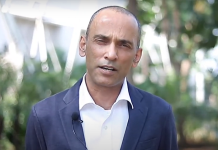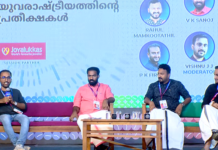
The International News Media Association (INMA) launched an AI-driven answer engine that draws on the organisation’s extensive and proprietary content library, becoming the first press association to create such a product.
Click here to view ‘Ask INMA’ answer engine now
‘Ask INMA’ is the world’s only answer engine with exclusive access to the association’s unparalleled archive. At launch, the multilingual AI draws on a decade of 7,460 best practices from the Global Media Awards, 5,712 blog posts from media professionals, 2,337 presentations from INMA’s conferences, study tours, and master classes, 356 video files from INMA’s webinars, 153 audio files from INMA conferences and master classes, and 72 original reports, written by INMA authors.
Nearly 90% of INMA content is walled off from public AI and search engines, making its surfacing and contextualisation something the news industry has never seen before.
“AI solves a problem of INMA content discovery and insights by cutting through media formats such as HTML, PowerPoints, PDFs, video, and audio,” said Earl J. Wilkinson executive director and CEO of INMA. “The new answer engine makes media professionals smarter faster and provides INMA members a leg up on ideas, insights, and best practices.”
“Ask INMA” is available exclusively to members of the International News Media Association (INMA).
The INMA answer engine is being launched in beta mode, yet it has been tested by the association’s Board members, initiative leads, and senior staff. Board members encouraged INMA to launch, as they found the answers invaluable. “It’s not perfect, yet we know INMA members will help improve ‘Ask INMA’ in the weeks and months ahead,” Wilkinson said.
Built on the OpenAI LLM, ‘Ask INMA’ searches take longer than public answer engines because it does not rely on pre-trained knowledge. A typical ‘Ask INMA’ inquiry takes 30-60 seconds to answer because it needs to “read” and process more information on the spot. It is in ‘deep research mode’ all the time.
“While this takes more time, the answers are more accurate and relevant,” Wilkinson said. “In short, the wait is usually worth it.”
The answer engine was developed in partnership with Techlabee.ai, a module AI engine made up of 12 specialised micro-engines that work together to process, analyse, and understand internal data such as documents, audio/video recordings, and complex knowledge formula.

















